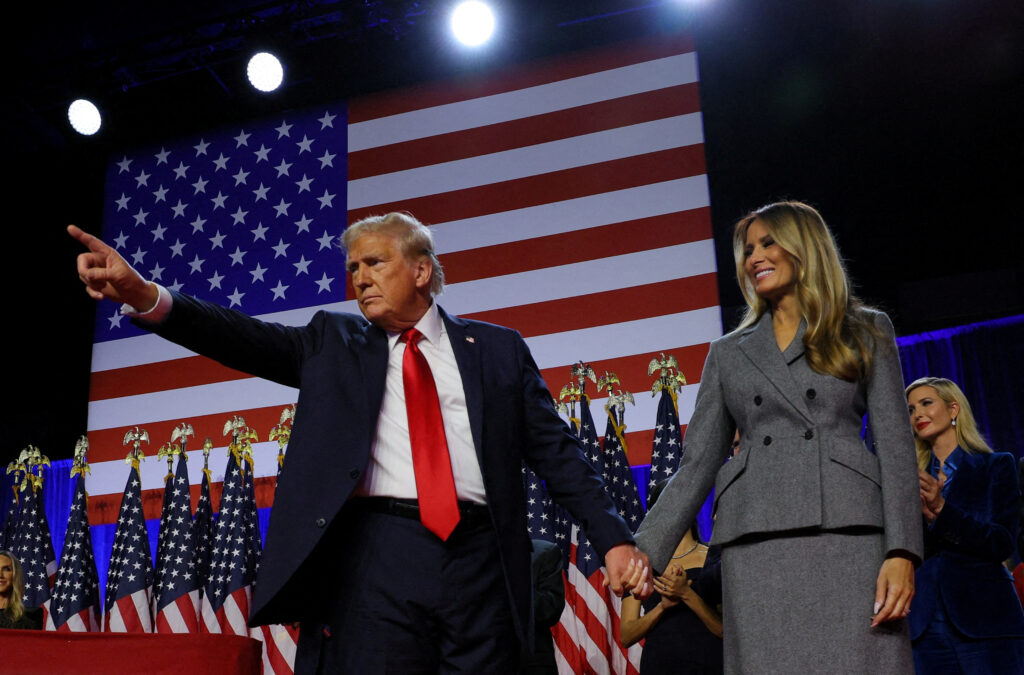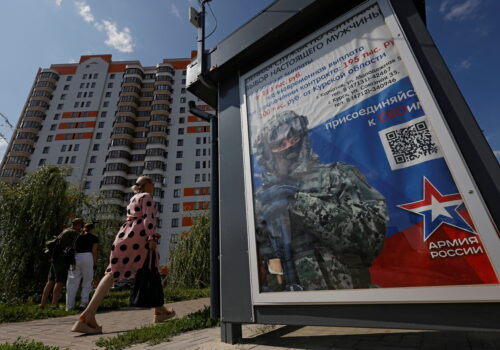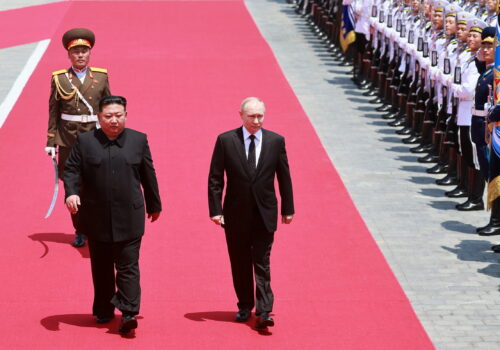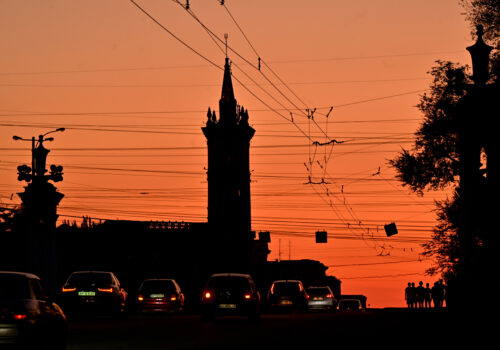Donald Trump’s election victory has sparked considerable disquiet in Ukraine, with many Ukrainians fearful that he may reduce or end US backing for the country once he takes office early next year. Trump provided Ukraine with significant military support during his first presidential term, but has also made a number of unfavorable statements that have led to questions over his commitment to the country’s struggle against Russian aggression.
At the same time, there are also hopes that Trump may prove more decisive than his predecessor in his approach to the war with Russia. This reflects growing frustration in Ukraine at what many see as the overly cautious policies adopted by President Biden, which have resulted in delayed weapons deliveries and restrictions on Ukraine’s ability to defend itself. With their country trapped in a bloody war of attrition against its far larger neighbor, many Ukrainians are desperate for a change in tactics and believe Trump may be able to provide it.
Ukrainian officials have been quick to congratulate Trump and demonstrate their readiness to work with him. “I appreciate President Trump’s commitment to the ‘peace through strength’ approach to global affairs,” commented Ukrainian President Volodymyr Zelenskyy in a congratulatory social media media post. “This is exactly the principle that can bring a just peace in Ukraine closer. I am hopeful that we will put it into action together.”
As the world continues to digest the implications of Donald Trump’s return to the White House, the Atlantic Council invited a selection of Ukrainian politicians, academics, and civil society representatives to share their thoughts on what a second Trump presidency may mean for their country.
Kira Rudik, Ukrainian MP, Golos Party leader: It is important to remember that Donald Trump is not president yet. There are still more than two months for President Biden to secure his place in history by taking decisive steps to support Ukraine. This could include lifting restrictions on missile strikes inside Russia, or inviting Ukraine to join NATO. Biden can still cement his political legacy as the leader of the democratic world by helping Ukraine in its fight for a free and democratic future.
By the time Trump returns to the White House in January 2025, Ukraine must prepare a truly pragmatic and efficient victory plan. We also need to work with supporters within the Republican Party and Trump’s team, especially those who have been urging Biden to switch from his policy of indefinite support toward a clearer strategy to win the war. It is true that many Ukrainians remain concerned over Trump’s earlier statements about ending the war in a single day, but we also hope that beyond the campaign trail, there is a clear understanding that wars cannot be stopped overnight without allowing dictators to have their way.
Stay updated
As the world watches the Russian invasion of Ukraine unfold, UkraineAlert delivers the best Atlantic Council expert insight and analysis on Ukraine twice a week directly to your inbox.
Oleksiy Goncharenko, Ukrainian MP, European Solidarity Party: Despite what many people think, Trump’s election was not a particularly happy day for Putin. Trump said during the election campaign that he wants to pump oil, and again emphasized this following his win. Oil is Putin’s weak spot. As soon as prices begin to fall, the Russian economy follows. The Kremlin also benefits from instability in the United States and was hoping for some kind of civil unrest to emerge from the election. It is now apparent that this is not going to happen.
How should Ukraine react to Trump’s victory? We need to stop making emotional appeals and focus more on demonstrating what we have to offer the United States in practical terms as a partner. This includes one of the most experience armies in the world. Our soldiers have an unrivaled understanding of modern warfare and can share this with our American allies. We can play a vital role in global food security. We have vast natural resources that can be developed together with our partners. Ukraine has to work around the clock to promote these messages.
Eurasia Center events

Olena Tregub, Executive Director, Ukraine’s Independent Anti-Corruption Commission (NAKO): While there were signs of panic in many European capitals following news of Trump’s election victory, in Kyiv the dominant emotion was hope. Many Ukrainians have been encouraged by talk within the Trump camp of “peace through strength,” which they see as an indication that Ukraine may receive the kind of support and security guarantees that can prevent Russia from continuing to destroy their country. Nobody knows how peace through strength would work in practice, of course, but significant numbers of Ukrainians hope Donald Trump will now seek to showcase the United States as a global power and reestablish the rules broken by Russia and other rogue actors.
Frustration in Ukraine with the current United States administration stems from its tendency toward self-deterrence and its consistent deference to red lines set by Russia. Ukrainians believe these policies should be reversed, with the US leading instead of Russia. Many think that Trump’s personality may lead to a more resolute approach, which is fueling a degree of guarded optimism over his election. Of course, there are also widespread fears that Ukraine could be thrown under the bus by the Trump administration. However, Ukrainians are more accustomed to uncertainty than most and are desperate to see a change in US policy toward their country.
Volodymyr Dubovyk, Associate Professor, Odesa Mechnikov National University: I believe Trump’s return to the White House is probably bad news for Ukraine. I do not subscribe to the view that a change from the current administration is for the best, even though I recognize the many flaws in its policy toward Ukraine. I think it is extremely naive to hope that Trump’s unpredictability, impulsiveness, and ego will push him to stand up to Putin. Based on past experience, he is more likely to do the opposite.
Trump will try to end the war, but that is far easier said than done. He will find that it is impossible to alter Russia’s objectives in Ukraine, and will decide that it is much simpler to pressure Ukraine into concessions. Crucially, Trump does not appear convinced that supporting Ukraine is in US interests. He will be happy to focus his attention elsewhere, while delegating the Ukraine issue to Europe. The future of US aid to Ukraine is clearly now in question, both in terms of military supplies and humanitarian assistance.
Peter Dickinson is editor of the Atlantic Council’s UkraineAlert service.
Further reading
The views expressed in UkraineAlert are solely those of the authors and do not necessarily reflect the views of the Atlantic Council, its staff, or its supporters.

The Eurasia Center’s mission is to enhance transatlantic cooperation in promoting stability, democratic values and prosperity in Eurasia, from Eastern Europe and Turkey in the West to the Caucasus, Russia and Central Asia in the East.
Follow us on social media
and support our work
Image: Republican presidential nominee and former US President Donald Trump gestures as he holds hands with his wife Melania during his rally, at the Palm Beach County Convention Center in West Palm Beach, Florida, US, November 6, 2024. (REUTERS/Brian Snyder)




